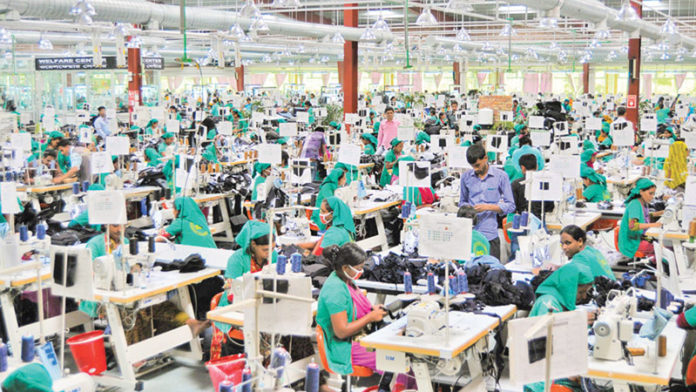DHAKA, May 8, 2021 (BSS) – Experts at a dialogue today underscored the need for strengthening corporate accountability in the readymade garment (RMG) sector to ensure workers’ wellbeing during the COVID-19 pandemic period.
The majority of accountability related practices such as adoption of corporate values, corporate governance, stakeholders’ roles, identifying risks and opportunities and transparency and disclosure are in many cases still at the elementary level, they opined.
Massive efforts are needed from employers, government and brands or buyers in order to improve those, they observed.
They made the observations at the virtual dialogue on “Corporate Accountability of the RMG Sector in View of COVID Pandemic: Challenges in Ensuring Workers’ Well-being”, said a press release.
The virtual dialogue was jointly organised by the Centre for Policy Dialogue (CPD) and the Shojag Coalition.
The webinar highlighted the importance of corporate accountability in the apparels sector which is a beneficiary of the stimulus package during the COVID-19 pandemic.
In the webinar, speakers informed that during the pandemic period, the livelihood condition of employed workers is still vulnerable, as family income has declined, with many forced to reduce food intake, sell assets or use savings and increase borrowing.
For improvement of workers’ livelihood, better employment opportunities are needed both in RMG and non-RMG sectors, they mentioned.
Dr Fahmida Khatun, Executive Director, CPD and Maheen Sultan, Team Leader, Shojag Coalition and Member, Naripokkho delivered the welcome remarks and introductory remarks, respectively.
They stated that corporate accountability refers to the responsibility of the stakeholders in ensuring that their actions contribute to overcoming poverty, fostering development and ensuring social justice.
In the global apparel value chain, this responsibility lies on suppliers, brands buyers and governments, they mentioned.
While making the keynote presentation, Dr Khondaker Golam Moazzem, Research Director, CPD stated that a large section of enterprises which are small and non-members of BGMEA but engaged in the RMG value chain needs to be brought on-board to practice corporate accountability.
This includes dimensions of governance, labour law compliance, freedom of expression and disclosure practices, he added.
He said there are differences of opinion between employers and workers with regard to the extent of practice of corporate governance at the enterprise level.
“This is particularly observed on work pressure and workplace harassment during the pandemic period. In cases necessary, workers often could not challenge the decisions taken by the management,” he added.
About 67.6 percent of the factories have applied for loans under the government’s stimulus package and 62.7 percent received subsidized credit for four months.
All RMG factories were not included and therefore all RMG workers were not supported. Workers were laid off or retrenched during the COVID pandemic in 2020 only received part of the benefits due for them.
According to the factories, 21.4 percent of them could not pay anything to the retrenched workers. The majority of workers were laid off during the first phase of COVID (April-May, 2020) when enterprises received government support to pay workers’ wages with the condition that no workers would be laid-off of or retrenched.
Exemptions permitted to application of the Bangladesh Labour Act allowing for increase of working hours raised concerns about high pressure on workers (section 324, 100, 102 and 105). While such exemptions can be used for a limited period of time, the exemption periods were extended, which is also a concern.



